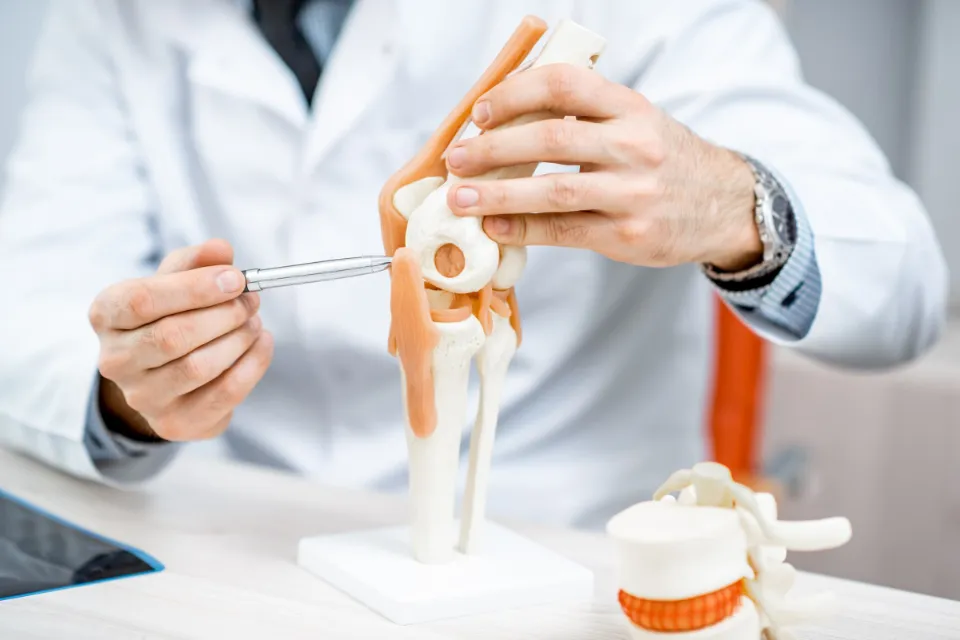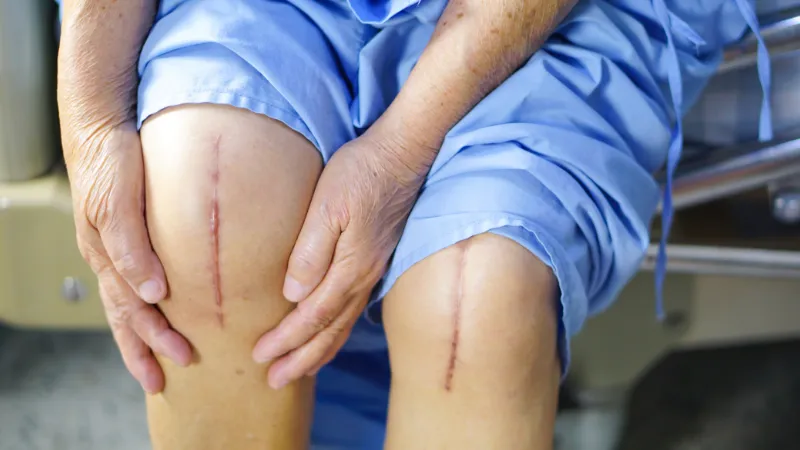Risks of Delaying Knee Replacement Surgery: See the Answer
Due to anxiety about the procedure or worries about the recovery period, patients frequently postpone knee replacement surgery. In fact, it is not advisable to delay knee replacement surgery. The risks of delaying knee replacement surgery include:
- risk of deformities developing inside and outside the joint
- risk of muscles, ligaments and other structures becoming weak and losing function
- increased pain / inability to manage pain
- increased disability/lack of mobility
- difficulty with normal activities of daily living
Delaying knee replacement surgery can have serious consequences, including the inability to walk, work, or carry out regular daily activities. Keep reading.
Table of Contents
What is Knee Replacement Surgery, and How Does It Work?
Before getting ready for knee replacement surgery, it’s best to understand how the procedure works. Knee replacement surgery consists of resurfacing the knee with metallic and plastic polymer parts or prosthetic implants that help support the joint. This enables mobility and reduces pain in the damaged area.
There are two types of knee replacement surgery:
- Total Knee Replacement:In this procedure, an artificial knee is constructed, and the joint’s two sides are changed. It is known that up to 15 years of good function can be expected from 90% of contemporary total knee replacements.
- Partial Knee Replacement:The joint is only replaced where it is damaged. Through a small incision, damaged bone and tissue are removed, shortening the recovery period after knee replacement.
Read about Does Health Insurance Cover Car Accident Injuries?
Risks of Delaying Knee Replacement Surgery
From the fear of pain to the doctor’s recommendation, there could be multiple reasons for delaying surgery. Consequently, it’s important to make a wise choice when doing so. Instead of replacing knees, most doctors first recommend other options. Surgery is advised if non-surgical measures are unsuccessful.
Following are some of the dangers of delaying knee replacement surgery:
- Damaged Bones and Joints:The tissues around the knee suffer more damage the longer you wait. As a result, the bones in the joint don’t move smoothly; instead, they grind against one another. This causes more damage to spread to the bone and worsens the pain.
- Surrounding Muscle and Tissue Weakens:Proper movements could be hindered by restricted mobility, ongoing inflammation, and increased pressure, which would weaken the muscle. You will move less the more discomfort you experience. Muscle deterioration results from this, increasing the vulnerability of your leg.
- Constant Pain Management:More pain medication and relief are required if your knee is not treated. Pain that is too severe makes it difficult to exercise and move around. Your general health is impacted by this in particular.
- Bad Posture:Your posture could eventually be impacted by the pain and discomfort. Other body pains are a result of poor posture. For instance, you might start to walk with a limp that makes it harder on your back or ankle.
- Risk of Injury:You run the risk of hurting the other knee as well from improper motion and restricted range of motion. Using your “good” knee or side all the time puts pressure on them, which is why. Additionally, moving puts you at risk for losing stability, which makes you more likely to fall.
- Surgical Complications:The damage you sustain worsens the longer you wait. Hence, making the surgery more complex and longer to perform.
- Increased Recovery Time:Your body needs more time to heal and adapt as you age, which will lengthen the time it takes for you to recover from a knee replacement.

Does Delaying Total Knee Replacement Surgery Have Any Damaging Effects on Your Hips?
While the hip and knees work in close coordination and support body weight, in the short term, delaying total knee arthroplasty is unlikely to have damaging effects. The hip, however, may experience some pain over time as a result of strange postures and movements. This might occur as a result of the knee’s ineffective off-center load balancing.
If Surgery is Delayed
Due to underlying conditions or unique situations, knee joint replacement surgery may be postponed. Here are some tips to help manage the pain:
- Whichever gives you more relief, warm or cold compresses help. Approximately three times per day, hold them for 10 to 15 minutes.
- Lengthening and enabling movements with light movements. It is best to look for a physical therapist who can accommodate specific needs.
- with the aid of a walker, cane, or knee brace.
- Hyaluronate injection keeps the joint lubricated and helps as a shock absorber as well.
What Are the Advantages of Knee Replacement Surgery?
Depending on individual cases, along with avoiding the above risks, patients may have the following benefits:
- Reduction or elimination of pain
- Ability to resume normal activities
- Better or improved mobility
- Reduced risk of injury
Tips to Maintain Healthy Knees
Maintaining your knees may delay or help stop the onset of problems.
- Regular exercise keeps joints mobile and prevents stiffness.
- Increase uptake of anti-inflammatory food or adopt supplements like fish oil.
- As well as warming up the muscles for a workout, stretching aids in muscle relaxation. Endorphins are released, and it is also known to lessen injuries.
- When exercising, don’t exert too much pressure. Alternate between low-intensity and high-intensity workouts, and add weights gradually at all times.
- Spend as little time as possible sitting with your knees bent deeply.

FAQs
When is the Best Time of Year to Have a Knee Replacement?
Many patients ask this question when considering TKR and the consensus is that the spring and early fall are the best seasons. You’ll want to wear as little clothing as possible during your recovery because it makes cleaning the wound and moving around easier.
At What Age Are You Too Old for a Knee Replacement?
UH orthopedic surgeon Steven Fitzgerald, MD, says there is no upper age limit for knee and hip replacement surgery. A patient’s overall health is the main consideration. “The oldest hip I replaced in the last 10 years was in a man who was 100 years old,” Dr. Fitzgerald says.
Make a Knee Replacement Surgery Appointment
So, what is the wise decision? If you are experiencing knee pain, make an appointment with your doctor and find out if knee replacement surgery or another type of treatment is right for you. There may be other treatment options, such as cortisone injections or medication, besides knee replacement.
Many patients who have had knee replacement surgery say they wish they had done it sooner. The majority of patients who have had knee replacement surgery not only report positive outcomes, such as reduced pain or complete freedom from knee pain.
Please leave a comment if you have any queries. I appreciate your reading.

